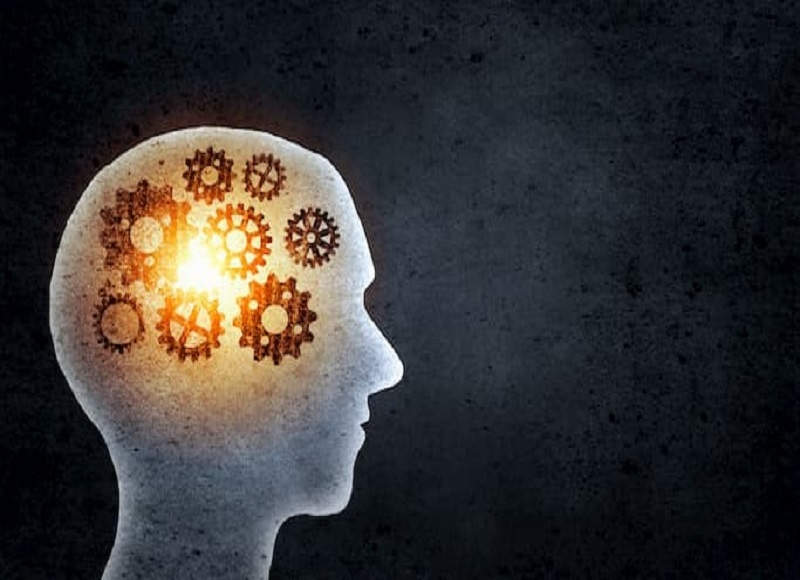Jamie Feusner M.D., Professor of Psychiatry and Biobehavioral Sciences from Brain Research Institute at UCLA based in the USA participate in Risk Roundup to discuss Machine Learning for Mental Health Diagnosis.
Mental Health Crisis
The mental health crisis is a silent epidemic. When individuals of all age groups suffer from some form of mental illness, the explosion in mental health problems puts each nation on the path of a mental health epidemic.
Reports are emerging that globally, depression, bipolar disorder, and schizophrenia rates affect millions. Many other mental health disorders like an eating disorder, anorexia nervosa is also rising. As a result, drug abuse seems to be growing, and suicide rates are increasing. Individually and collectively, these factors play an important role in not only the economic cost of a mental health crisis that is becoming an issue but the societal risks are also getting complex and becoming a significant problem. This is a catastrophic crisis at all levels.
Also, the lack of biomarkers to aid in the diagnosis, determination of prognosis, and selection of treatment for patients, has put psychiatry behind the rest of medicine when it comes to diagnosing illness. Moreover, as nations confront the complexity of mental health illnesses, a lack of understanding of its root causes, genetic predisposition, biochemical working, effective treatments are collectively worsening the crisis.
- So, what can be done?
- How can healthcare professionals control this catastrophic crisis?
It seems there is a need for technology-based intelligent solutions for timely diagnosis and therapy.
Machine Learning Approach
Artificial Intelligence (AI)/Machine Learning (ML) is anonymous and invisible. That perhaps plays a defining and determining role in diagnosing mental health conditions as AI/ML tools can seek out the undiagnosed and speed up the timeline on needed treatment. This possibly improves the odds of positive outcomes for treatment as well.
This is important as the diagnosis of mental health diseases is generally not very common. While there are many diagnosed patients with mental health illnesses, there are perhaps millions more across nations that have not been diagnosed. As a result, there are countless undiagnosed people suffering today with varying levels of symptoms.
As a result, irrespective of a nation, providing effective treatment is becoming a complex challenge for the healthcare system. Since the technology-based solutions have become a necessity, the emerging AI/ML solutions are an opportunity to address the growing crisis. As a result, it is essential to understand and evaluate:
- What are the different ways machine learning is on its way to transforming healthcare?
- How can machine learning help diagnose the root cause of mental health problems accurately?
- How does machine learning help with predicting mental health crises or the severity of the situation?
- How can machine learning help to scan all individuals and diagnose those who face mental health challenges?
- How will machine learning help identify biomarkers for mental diseases?
- What data is commonly used for machine learning for mental health? What data would be ideal?
- While mental health diagnosis can perhaps be safe from design flaws, can we achieve the same effectiveness from AI backed mental health treatments?
- What kind of safeguards will need to be in place for machine learning based mental health tools?
The time is now to understand and evaluate the security risks emerging from the machine learning-based mental health diagnosis tools and trends.
For more, please watch the Risk Roundup Webcast or hear the Risk Roundup Podcast
About the Guest
Dr. Feusner is a Professor-in-Residence in the UCLA Department of Psychiatry and Biobehavioral Sciences. He has been treating patients in the UCLA Obsessive-Compulsive Disorder Intensive Treatment Program since 2002 and has been Director of the program since 2006. Dr. Feusner has published on obsessive-compulsive disorder (OCD), body dysmorphic disorder (BDD), and anorexia nervosa and has lectured nationally and internationally on these topics. He has received funding from the National Institutes of Health (NIH) and foundation grants as a principal investigator for studies of OCD, OCD-related disorders (BDD), eating disorders, and gender dysphoria. Dr. Feusner conducted and published the first functional magnetic resonance imaging (fMRI), diffusion tensor imaging (DTI), and EEG studies in BDD; and the first neuroimaging studies to directly compare BDD to anorexia nervosa. His OCD research is focused on understanding functional and structural brain abnormalities, effects of treatment, prediction of response to treatment, and development of improved therapies. His research utilizes functional and structural neuroimaging, psychophysical testing, and advanced computational methods to understand the brain and behavior.
Dr. Feusner graduated with honors from UC San Diego with a major of Biochemistry and Cell Biology. He obtained his medical degree and completed psychiatry residency training at UCLA. He then completed a clinical psychopharmacology fellowship followed by an NIMH-funded psychobiology research fellowship where he received training in neuroimaging. He teaches pharmacotherapy and cognitive-behavioral therapy to psychiatry residents and is a research supervisor for postdoctoral fellows, graduate students, and undergraduates. Dr. Feusner is a member of the UCLA Center for Cognitive Neuroscience, the Brain Research Institute, and the Neuroscience Interdepartmental Program. He is also a member of the International OCD Foundation Scientific and Clinical Advisory Board, the International College of Obsessive-Compulsive Spectrum Disorders, and the Enhancing NeuroImaging Genetics through Meta-Analysis (ENIGMA) OCD and anorexia nervosa working groups. (Based on his UCLA profile)
About the Host of Risk Roundup
Jayshree Pandya (née Bhatt), Founder and CEO of Risk Group LLC, is a scientist, a visionary, an expert in disruptive technologies, and a globally recognized thought leader and influencer. She is actively engaged in driving global discussions on existing and emerging technologies, technology transformation, and national preparedness.
About Risk Roundup
Risk Roundup, a global initiative launched by Risk Group, is a security risk reporting for risks emerging from existing and emerging technologies, technology convergence, and transformation happening across cyberspace, aquaspace, geospace, and space. Risk Roundup is released in both audio (Podcast) and video (Webcast) format and is available for subscription at (Risk Group Website, iTunes, Google Play, Stitcher Radio, Android, and Risk Group Professional Social Media).
About Risk Group
Risk Group LLC is a leading strategic security risk research and reporting organization.
Copyright Risk Group LLC. All Rights Reserved





 A Quantum Revolution Is Coming
A Quantum Revolution Is Coming